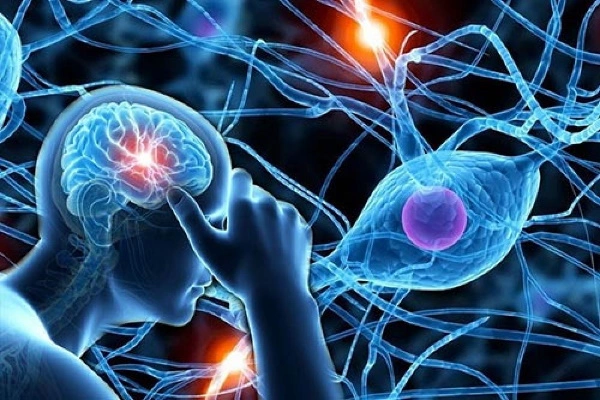Hereditary nervous disorder

If you tested your DNA with a personal genomics service like 23andMe, AncestryDNA, FamilyTreeDNA, MyHeritage or another testing company, you can learn more about your risk factors for hundreds of diseases. By clicking the button above ⬆️, you can upload your raw DNA data file and receive a personalized 250-page health report with research links that is the most comprehensive.
An elaborate web of electrical signals is created by the brain and nervous system, which work together to coordinate muscles, senses, speech, memories, thought, and emotion.
There are various diseases that have a genetic link and impact the nervous system. Some are caused by a mutation in a single gene, while others have a more intricate mode of inheritance. As we gain more knowledge about the development of neurodegenerative disorders, we notice similarities between them. For instance, Alzheimer's brain plaques and Parkinson's inclusion bodies share at least one common component. Additionally, Huntington's disease, fragile X syndrome, and spinocerebellar atrophy are all classified as "dynamic mutation" diseases, where there is an expansion of a DNA repeat sequence.
AD (Alzheimer's Disease)
Dementia is most commonly caused by AD, which leads to a significant decline in cognitive functions and memory. This condition typically affects individuals over the age of 65, with less than 10 percent of cases following an obvious inheritance pattern known as Familial Alzheimer's Disease (FAD). FAD is a rare form of Alzheimer's disease that usually occurs between the ages of 30 and 60, and those with a family history of FAD have a 50 percent chance of developing dementia. Mutations in three genes, namely presenilin-1 (PSEN1), presenilin-2 (PSEN2), and amyloid precursor protein (APP), have been identified in families with early-onset AD. While common variations in another gene, apolipoprotein E (APOE), confer a significant risk of Alzheimer's disease in populations worldwide, APOE risk variants alone are not enough to cause this hereditary neurological disorder.
Our Center for Brain Health offers a comprehensive evaluation of Alzheimer's risk, including APOE genotyping, and provides multidisciplinary interventions to protect at-risk subjects from the disease. This is in addition to the services provided by the Center for Medical Genetics.
HD (Huntington's Disease)
Involuntary movements, impaired motor skills, personality and psychiatric changes, and cognitive impairment are all symptoms of this disorder. Before genetic testing is considered, individuals who may be susceptible to Huntington's disease usually receive genetic counseling, psychological counseling, and a neurological examination.
PD (Parkinson's Disease)
PD is identified by a decrease in dopamine, a neurotransmitter, which leads to slow movement, tremors, rigidity, and unstable gait. Unlike other conditions, the genetics of PD are complex, with several genes being linked to the disease. While genetic testing is available for certain rare forms of PD, most genetic testing is still being researched.
CADASIL stands for Cerebral Autosomal Dominant Arteriopathy with Subcortical Infarcts and Leukoencephalopathy.
CADASIL presents as a genetic neurological condition that manifests with a history of migraines, stroke-like episodes before the age of 60, cognitive and behavioral disturbances, and dementia. The NOTCH3 gene is implicated in CADASIL, and about 90% of those affected will have a detectable genetic mutation in this gene. Genetic testing is available for individuals with a personal or family history of CADASIL.